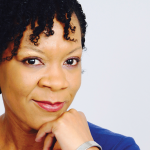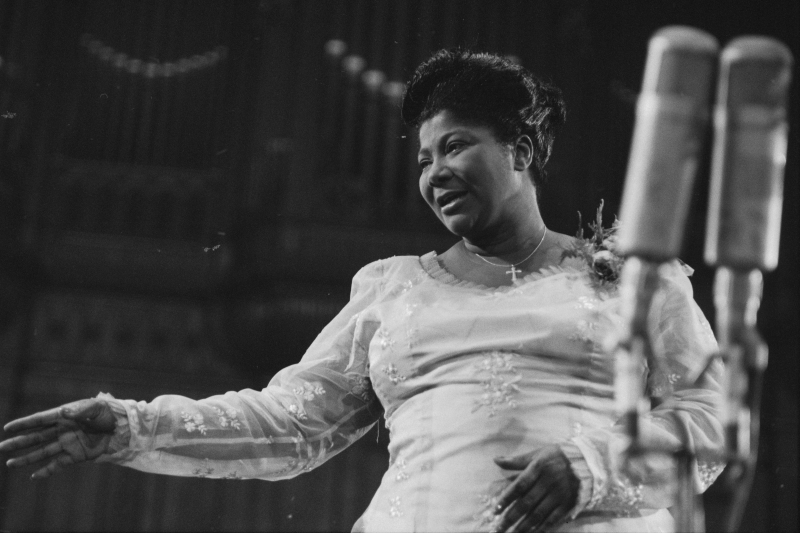Gospel singer Mahala Jackson was widely considered one of the most influential vocalists of the 20th century. Photo: ETH-Bibliothek Zürich, Bildarchiv / Fotograf: Comet Photo AG (Zürich)]
BY KEISHA BELL | Visionary Brief
Can you confidently list your gifts and talents? Are you using them to better the world?
Meet Mahalia Jackson, an internationally known gospel singer who has been commonly referred to as “The Queen of Gospel” and a civil rights activist. Jackson became the first gospel singer to perform at Carnegie Hall in 1950. She lived from Oct. 26, 1911, through Jan. 27, 1972.
Jackson once said that she sang gospel music because it made her feel free. She said that it gave her hope. In a world with so much despair, there is nothing wrong with sharing hope.
When her mother died, she was only four or five years old. The family decided that her Aunt Duke would raise her. Jackson was beaten if the house was not cleaned immaculately. Under her aunt’s authority, she worked all day. Throughout such hardship, she held on to her love for singing. Her favorite place to sing was in church. Through it all, she held on to hope.
Jackson received numerous honors and awards during her lifetime. She traveled the world singing gospel songs. She sang at John F. Kennedy’s inaugural ball. She had a radio series. In addition, Jackson appeared on television programs.
Eventually, Jackson toured as a concert artist. She appeared less in churches and more often in concert halls. Even so, she kept her pledge not to sing secular music. Notably, her Aunt Bell told her that one day, she would sing in front of royalty. Her aunt ended up being correct.
In 1956, Jackson met Martin Luther King, Jr. and Ralph Abernathy—both civil rights leaders. Shortly afterward, they contacted her to come to Montgomery, Ala., to inspire the people who had become discouraged, as well as to sing at a rally to raise money for the bus boycott. Although she received death threats, Jackson did it.
She was fully aware of the struggle in the South even though she was internationally known and living in the North. After all, she still faced racially discriminatory practices.
For example, when she tried to buy a house in Chicago, the white homeowners and real estate agents would turn her away. They claimed that the homes had already been sold or that the homeowners had changed their minds about selling.
Jackson did find a house, however, but the neighbors were not happy. At one point, she had to contact the police for protection because shots were fired at her windows. As a result of her moving in, a number of white families moved out of the neighborhood, and black families moved in.
After King and Abernathy founded the Southern Christian Leadership Conference (SCLC) in 1957, Jackson often appeared with King because she regularly sang before his speeches and for SCLC fundraisers. She confidently used her gifts and talents to better the world despite numerous threats made against her.
Jackson did not have to do so, but she traveled with King to the deepest parts of the segregated South. It was Jackson who cried out: “Tell them about the dream, Martin,” which prompted King to divert from his prepared speech into a partly improvised oration on the theme “I have a dream” at the March on Washington for Jobs and Freedom in 1963.
Jackson understood her purpose. She said that she hoped that her music could “break down some of the hate and fear that divide the white and black people in this country.” A true humanitarian, she devoted much of her time and energy to helping others.

Keisha Bell








